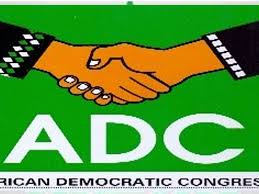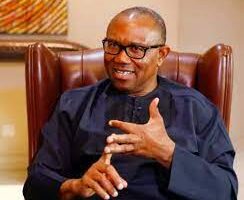AGBOOLA BAYO in this piece examines last Thursday’s Yoruba Assembly summit, themed “Yoruba People; Our Aspirations and Minimum Demands from the Central Government of Nigeria,” held at the Parliament Building in Ibadan, the Oyo state capital and the issues at stake, notably, the endorsement of another Jonathan presidency.
Last Thursday, 19th March, some Yoruba leaders consisting of the APC Vice Presidential candidate, Professor Yemi Osinbajo, serving APC governors, former governors and traditional rulers stormed the Parliament Building, in Ibadan for another summit of the Yoruba Assembly. The theme was “Yoruba People; Our aspirations and minimum demands from the Central Government of Nigeria,” during which the Convener of the Summit General Alani Ipoola Akinrinade (rtd) minced no word in leading his kinsmen from Oyo, Osun, Ogun, Ondo, Ekiti, Lagos Kwara, Kogi, Delta and Edo , to renew their age-long clamour for true federal structure where all states and regions in the country would be working and effectively function at their own pace – without hindrances and where every state and region will be controlling its own economy and resources with little contributions to a weak centre.
General Akinrinade pointed out that the purpose of the summit is to provide Yoruba people, a purpose-driven and dynamic development agenda that ensures Yoruba nation’s well-being and self- actualization, a questioning thus: “as a people, the Yoruba of yesterday was glorious, why can’t our present and future be ?”
“The current governance sphere and structure in Nigeria is not favourable, has impeded and become a threat to Yoruba people and our developmental aspirations. In general and strategic terms, Yoruba people have been victims of arrested development. Our existence as a people in the Nigerian space has been particularly devastating, especially when one compares this to the significant progress made by us between 1954-1966 towards building socio-democratic platform, a modern, just and egalitarian society. When the issue of educational system in the South West region is raised in the present day, the first sets of thoughts that come to mind are: decline in standards, deterioration of facilities and churning out of unemployable graduates and youths. The quality of healthcare institutions in our region and the country as a whole is generally considered poor, ”he said.
“South-west Region has vast endowments and potentials to rival some stand-alone countries like South-Africa, Canada, Ghana and even United Kingdom, we have over 40 million people approximately twice the population of Ghana and close to that of South Africa, as a people, we can boast of a large markets in Nigeria and we are home to possibly the highest numbers of middle class in the country; despite these, the Region still lags behind on quite a numbers of developmental indices. The vast agricultural and industrial potential of the region remains untapped and most of states in the region still rely largely on funds from the centre to balance their budget”.
General Akinrinade added that for the Yoruba people to arrive at these, “part of our action must be to work towards the erosion of poor leadership from the Nigerian political space” saying, “we cannot afford a leadership that is absent of developmental foresights, that lacks innovative thinking and is not capable of producing the right responses and answers to the challenges of multi-ethnic and multi-cultural politics in the country. The absence of imaginative leadership in Nigeria in developing the right responses to the Boko Haram insurgency and its terrorist plan to decimate the nation is one we must collectively confront”.
“For leadership recruitment, Yoruba people will no more rely on accidents and the overwhelming eloquence of money. Our people would reach out to time tested values and moral compass .Yoruba people are looking for leaders who are ready and willing to lead by example, who are humble enough to be part of a collective development agenda and work towards consensus. For us Yoruba people, a Nigerian leader must be ready to make the necessary impact and imbibe core value-laden attributes. The national leader Yoruba people want and would support should subscribe to a body of beliefs based on our perennial and tested values of honour, dignity, integrity, industry and patriotism which are encoded in the concept of Omoluabi. The leadership Yoruba want should be those body of men and women who are believers and ready to live according to those tenets of Omoluabi and work for its continuous propagation and effectiveness. It is this embodiment of values that should give us in the process of who we vote for at the 2015 general election, not corrupted endorsements.”
Governor Abiola Ajimobi while speaking at the summit declared that the setbacks the Yoruba people have been experiencing since 1999 should be thoroughly tacked now without delay, saying “It will interest you to note that, in the wheel of power at the central, there are only two Yoruba people. Indeed, out of the 50 most powerful men and women in the executive, legislative, judicial and even security components of power in Nigeria, there are only two Yoruba people. These are the Chief of Staff to the President, whose choice was almost an afterthought and the Accountant General of the Federation. Never had the sons and daughters of Oduduwa been treated with such ignominy and disregard by a country their forefathers shed their blood to make a shining sun under the heavens”.
“In the present political configuration at the federal level, not only are we totally vacant, in spite of our rich political evolution and profound political traits in Nigerian politics, in cases where Yoruba are ever underscored, the worst of us are promoted to lead the best of us.
The Machiavellian tactic of dividing us to effectively rule us is on the upswing and they promote an understanding of Yoruba leadership that is laughable and warped in the least. In the same vein we must examine the role being played by that biblical god of money, Mammon, in the fate of Yoruba sons and daughters, especially vis-a-vis the recent violence unleashed on Lagos by the Odua Peoples congress (OPC). Was that violence part of our Yoruba culture for which we are known by the rest of the world? We must collectively resolve whether we want to continue to remain in the current servitude under the PDP or liberate ourselves from the shackles on our feet…”he said.
The All Progressives Congress (APC), Vice Presidential candidate Professor Yemi Osinbajo, while speaking at the summit declared that the Yorubas have been setting the pace for other regions since pre-independence days hence the need for the Yoruba people to support APC in bringing the desired change in the country.
Governor Rauf Aregbesola in his remark said the Yoruba people as a leading light of Africa must not be involved in activities that may undermine the race, such as corruption and the purported endorsement of candidates, saying there is the need for the region to continue to work for their unity and continue to be a leading light in Nigeria and Africa as a whole.
The Yoruba Assembly in a communiqué issued at the end of the summit demanded that “ Yoruba land will not be an occupied territory. Yoruba must pursue their destiny in line with the development priorities and ambitions of her people. The creation of a structural environment for effective devolution of powers to the country’s constituent units, as a strategic development imperative. A repeal of laws and policies that stifle the creativity of her people. The dismantling of all pseudo-security agencies that impede peace, harass and terrorise her citizens in order to enforce pre-determined agenda that are not consistent with the wishes of Yoruba people”.
In the communiqué which was signed by its Convener, General Alani Akinrinade, the Assembly added that “regional competitiveness should be the basis and indeed the key driver of growth and development of Nigeria, recognising that the creative spirit and latent capabilities of the country reside within the geo-political zones. That the effectiveness of the Federal Government of Nigeria lies on focusing on the critical issues of governance that is common to all components, like defence, national security, foreign affairs, currency and exchange rate, etc, while all other socio-economic responsibilities, especially that of resource control, devolve to the federating units.
On the general elections, the Assembly said “finally, Yoruba people hereby state categorically that the general elections scheduled to commence on Saturday, March 28, 2015 must not be postponed, or jeopardised, saying, “Yoruba people will not countenance any form of unelected government, be it Government of National Unity, Interim National Government or howsoever described.
Yoruba people will not hesitate to take our destiny in our own hands in the event of any attempt to compromise our democratic existence”.
While affirming that the “resolutions of the National Conference failed to resolve fundamental issues that are prerequisite to a sustainable federalism and without which the few useful recommendations would become meaningless, we call Yoruba people to vote for leaders who have the interests of the Yoruba at heart, in order to bring an end to this unacceptable state of affairs.
If the events in the last few weeks in the South West are anything to go by, there is no doubt in the fact the Yoruba people will surely be approaching the 2015 general elections – particularly the presidential election – with a very glaring division or to say the least a sharply-divided house.
Already, the Afenifere, the Governor Olusegun Mimiko-led Post-National Conference summit and the Oduduwa Frontliners on their part openly endorsed the candidacy of President Goodluck Jonathan for the March 28 poll based on his determination to implement the 2014 confab resolutions which, according to Afenifere, included the age-long clamour for true federalism by Yoruba leaders.
The Yoruba Assembly on its part, is insisting that the “resolutions of the National Conference failed to resolve fundamental issues that are prerequisite to a sustainable federalism and without which the few useful recommendations would become meaningless” and that democratic governance requires an active civil society that is able to question the public authorities and suggest different methods of political participation – not just the wholesale endorsement of a candidacy.



